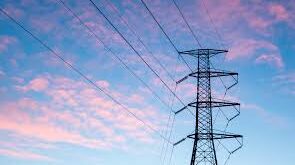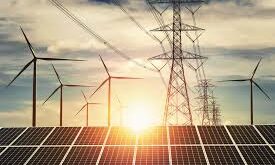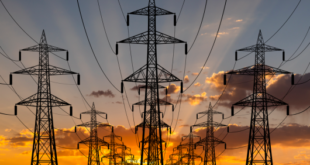The United States and its key Pacific allies on Sunday announced plans to build a $1.7 billion electricity grid in Papua New Guinea. in the latest effort to counter China’s growing influence in the region.
The leaders of Australia. Japan and New Zealand joined U.S. Vice President Mike Pence in signing the partnership accord. which aims to connect 70 percent of the population to electricity by 2030. up from 13 percent currently.
The project “is proof that America and our businesses are investing in this region as never before.“ Pence said at the signing ceremony in Port Moresby. with PNG Prime Minister Peter O’Neill. Australia’s Scott Morrison. Japan’s Shinzo Abe and New Zealand’s Jacinda Ardern. “Be assured. to our allies gathered here and friends all across this region. that the United States is going to continue to work in ways“ to create “a brighter future.“ he said.
The investment is part of a wider push by the U.S. administration of President Donald Trump to check China’s economic and diplomatic thrust into the Indo-Pacific region and offer an alternative to Chinese President Xi Jinping’s Belt-and-Road Initiative.
Still. the sums of money offered by the United States and its allies are dwarfed by Xi’s infrastructure lending plan. which Morgan Stanley says may total $1.3 trillion by 2027.
Addressing business leaders at an APEC CEO summit on Saturday. Pence said the United States offered countries in the region a “better option“ than China. He warned against taking opaque Chinese loans. saying the United States “doesn’t drown our partners in a sea of debt“ nor offer “a constricting belt or a one-way road.“
Xi defended the Belt-and-Road Initiative in his speech at APEC. saying it’s “not a trap as some people have labeled it.“
The United States has been increasingly critical of China-backed infrastructure projects. saying many aren’t properly planned. financially sustainable and of questionable use. A new six-lane highway built by China in Port Moresby. for instance. has been dubbed the “road to nowhere“ in media reports.
The language in the electricity agreement signed Sunday is a nod to such criticism. The partnership is “intended to focus on the importance of principles-based. sustainable infrastructure development that is transparent. non-discriminatory. environmentally responsible. promotes fair and open competition. upholds robust standards. meets the genuine needs of the people of Papua New Guinea and avoids unsustainable debt burdens.“
 Iran Energy News Oil, Gas, Petrochemical and Energy Field Specialized Channel
Iran Energy News Oil, Gas, Petrochemical and Energy Field Specialized Channel




